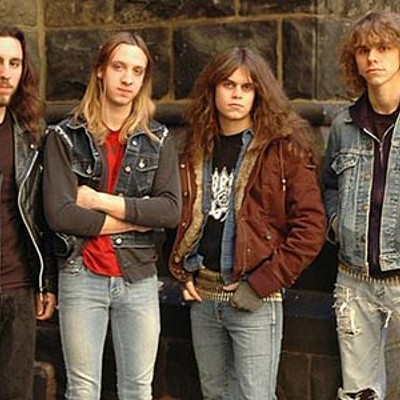Wednesday, June 3, 2009
Payne-ful lessons in District 6
This comes a little late, I guess, but as far as I know, no one else has taken a very close look at what happened in Pittsburgh's race for City Council District 6. Which is weird, since for lots of people this was the most surprising outcome of the May 19 primary.
So ... how did Tonya Payne, a one-term incumbent, lose to Daniel Lavelle? How could Payne, who beat Sala Udin in 2005, lose to Udin's former assistant just four years later?
On paper, these races were very similar. In both, Payne was running against either Udin or his ally. And in both, the same dark-horse candidate -- school board member Mark Brentley -- was also in the running. So how did Lavelle find the means to defeat her this time around?
The answer is simple: He didn't. Payne beat herself.
As with most elections this May, turnout in this race was low. In the 2005 council contest, more than 4,800 votes were cast: This year, the number was just below 4,300 -- a drop of 11 percent.
But Payne was the only candidate who suffered as a result. Lavelle won the race with 1,910 votes -- a couple dozen below his former boss's 2005 total. Brentley, too, had almost exactly the same amount of support he had 4 years ago: In 2009 he earned 696 votes -- just 13 below his 2005 total.
But Payne? She finished 486 votes short of her total in 2005 -- a drop of 22 percent. That's twice the decline in overall turnout. And that's what did her in.
I've always been irritated when pundits say things like, "This race will be decided by turnout." Yeah, duh: The candidate who gets the most supporters to show up generally wins elections. But in this case, I think, the observation has some merit ... because Payne seems to have gotten cocky.
Iit's safe to say that she was, well, confident going into the election. As CP's Chris Young reported, at her campaign kickoff Payne told backers, "We're absolutely going to win. It's just by a matter of how much." And it wasn't just a matter of projecting confidence to supporters, either: In an interview two months after that campaign event, Payne asked Young, "Why shouldn't I be confident? Is there a reason not to be?"
Apparently, there were a couple hundred reasons.
Perhaps the most damning result in this race is this: Payne's support fell most sharply in Ward 5, the heart of the Hill District.
A new hockey arena is going up just next door to these voters, who've been promised jobs and other community benefits as a result. Ordinarily, you'd expect the promise of development to benefit an incumbent. And yet, Payne got nearly 300 fewer votes in Ward 5 than she did four years ago -- before anyone had ever even heard of a "Community Benefits Agreement." (She also lost ground in nearby portions of Wards 3 and 4.)
Lavelle's campaign, not surprisingly, had faulted Payne for not doing more on the CBA. But few voters turned to him instead. He did improve on Udin's Ward 5 performance, but not enough to explain the drop in Payne's support. Apparently, more voters were turned off by Payne than were turned on by Lavelle.
I'm not sure whether this is because voters are cynical about the CBA -- they've heard job promises before, after all -- or whether they are merely cynical about Payne. Probably both. The incumbent, after all, originally supported a plan to bring a casino to the Hill, and once accused those who sought community benefits of trying to commit "extortion."
Maybe it doesn't really matter, since Lavelle won in any case. But Lavelle should make sure he doesn't get cocky. He won with just 44.5 percent of the vote -- almost exactly the same percentage Payne earned in 2005. And while a lot of folks outside the district are excited by his victory, the numbers show little evidence that people inside the district were swept up in the enthusiasm.
Other than a modest improvement in precincts near the arena site, Lavelle did nothing to expand on the base that Udin bequeathed him. In fact, Lavelle actually lost ground in the district's North Side wards (where perhaps other voters shared Sue Kerr's doubts about his commitment to the North Side).
This election was about voters turning on Payne ... just as 2005 seems to have been about voters turning on Udin. If he's smart, Lavelle will be mindful of the trend here.
Tags: Slag Heap










